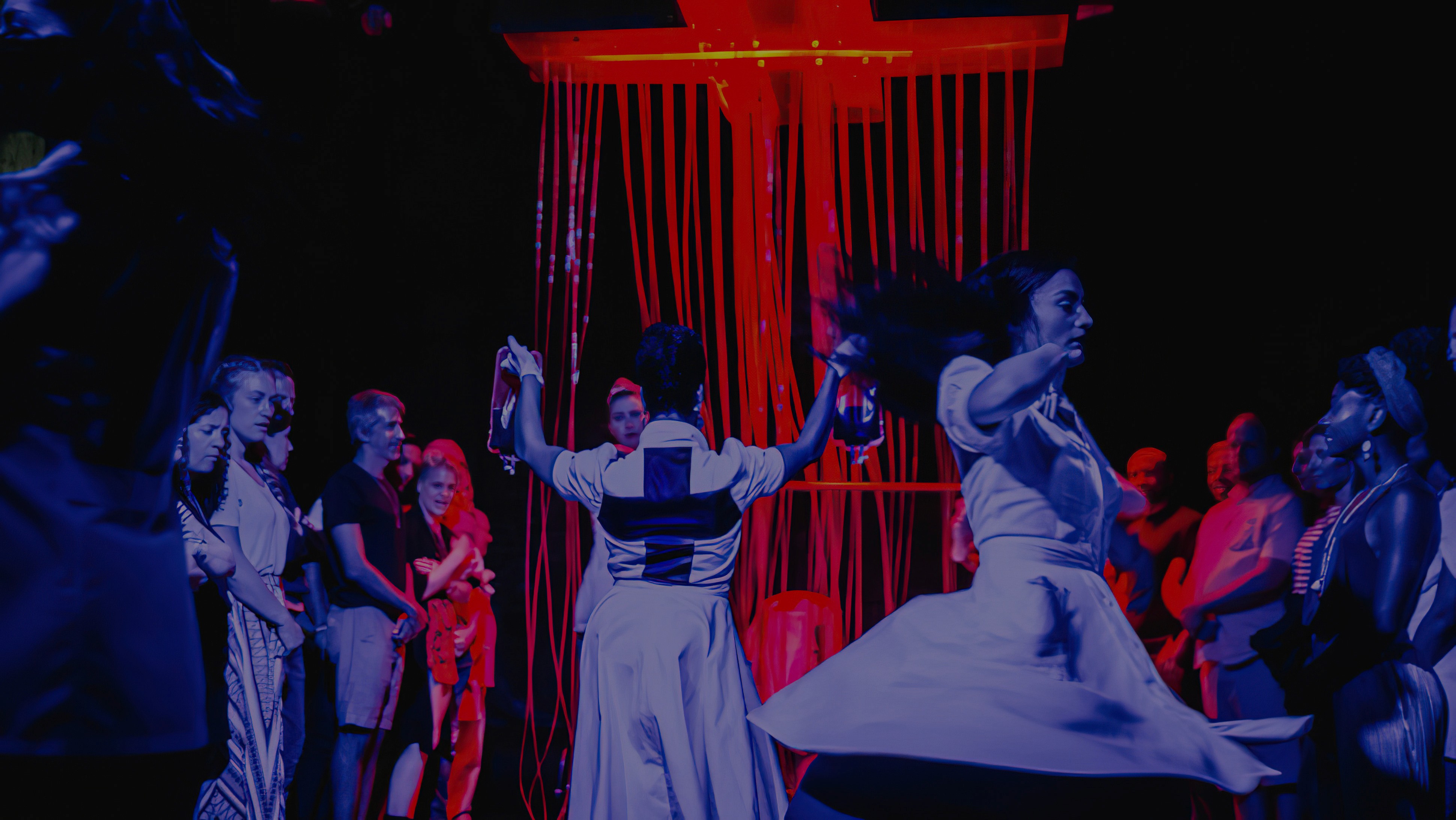
CHANGE THE STAGE.
From spectator to stakeholder. Cast your vote, fund daring theatre, and reap rewards.
Bringing Power to the Patrons.
Vote. Support.
Create a new era of Theater.
Artistically, the theater scene is as vibrant as ever. There are bold and brilliant directors, writers, and performers who are ready to take risks—to excavate new meanings and defy formal conventions in service of pushing the medium forward. But just when their work is primed for an audience, these worthy creatives are met with friction.
Mounting a production with meaning shouldn't be so hard. People's Spotlight simplifies the process with an emphasis on community.
People's Spotlight lets anyone become a producer. Members from around the world contribute funds to the organization, vote on shows they'd want to support, and then benefit from their success.
THE STEWArds
THE BASICS

People's Spotlight brings democratic, location agnostic, transparent funding to the theatre world.
How does it work?
Each month, you receive links to series of exclusive video pitches and previews of new productions in development.
Over the next week, you engage in online conversations with other members about the shows, and build consensus over their merits and chances for success.
Successful shows will generate returns for the coop, which will be both reinvested in coop reserve fund, and distributed to members on a quarterly basis.
At the end of each month, members vote on which shows to support.
Once plays are in production, members will receive exclusive updates about the work in progress, as well as opportunities to promote plays in their regions.
THE POWER OF COOPERATIVES
The Foundation of People's Spotlight
Cooperatives are unique in that they are owned and operated by members, rather than small groups of investors. Cooperatives protect our members from laws and other liabilities. Read more here.

Membership BENEFITS
Every member receives one vote with a minimum contribution of $60. Individuals can contribute more funds to be allocated, but don't receive additional votes.
Shows that receive support from People's Spotlight provide benefits like exclusive content, ticket discounts, and more.
Membership gets you access to the People's Spotlight community, where artists and producers share ideas and more.
Members receive benefits for all shows selected after they join.
Members exclusively choose what to do with funds contributed to the cooperative.
For Artists,
Producers, and Directors
Become a member! You must be a member of People's Spotlight to submit a show for funding.
All applications are accepted on a rolling basis, and members vote on them monthly.
If your proposal does not succeed, the project can re-apply up to two times. After three votes, the project is no longer eligible for funding.
Legal Innovation Interests in Limited Cooperative Associations are not considered securities at the federal level. However, any prospective member should insure they comply with all local and state law in participation in the Cooperative. PS operates on the basis of patronage, with members receiving financial returns in proportion to their participation in the association. This structure emphasizes active involvement, rather than a passive investment for profit. Membership is non-transferable. Colorado LCAs like PS cater to a broader audience compared to traditional accredited investor-focused Limited Liability Companies (LLCs). Anyone looking to participate at the investor level will have to meet certain requirements (1M in assets or $250k a year income). By opening the door to a wider pool of potential members, an LCA can encourage greater community involvement and support, fostering a sense of shared responsibility and commitment to the project's success. This inclusiveness allows projects to raise capital and garner support from various stakeholders without the need to rely solely on accredited investors.
Why Colorado? Colorado is one of a few states to have adopted the Uniform Limited Cooperative Association Act (“ULCAA”). Title 7, Article 58, contains the Colorado Limited Cooperative Association Act (“LCA”), which was passed in 2010. ULCAA retains central cooperative principles and “guard rails” but permits outside “investor-members” to have limited voting rights and a share of revenue or profits. The LCA is a hybrid entity, pairing the features and controls of more traditional corporate governance with the flexibility of an unincorporated entity, like an LLC or a limited liability partnership. Unlike traditional cooperatives which are for members only, LCAs allow for the option of an investment membership tier – enabling the coop to accept operating and growth capital beyond its general membership tiers (patron/contributor) and therefore generates a profit for both the benefit of its members and the interests of stakeholders. In contrast to private corporations, cooperatives, as member-owned and democratically-governed entities, grow in ways that are most attractive to the longevity, benefit, and sustainability of their members. This means, there is no objective of any liquidity event.